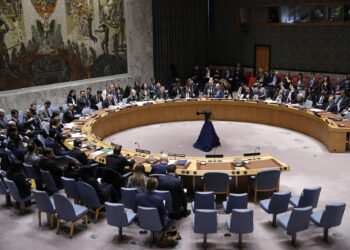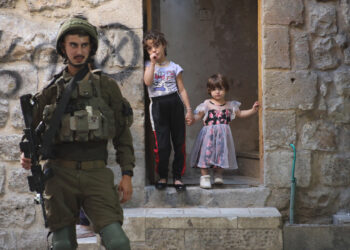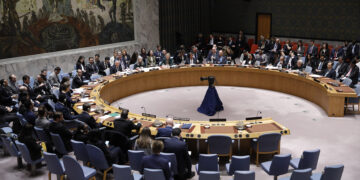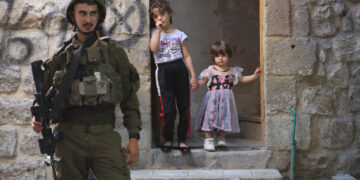Mohammed Abu Lebda is a Palestinian poet and translator from Gaza.
"We faced a horrible night," Mohammed Abu Lebda messaged me recently from Gaza. "One of the worst. We thought this is the end."
Abu Lebda and his family are in Rafah, on the border with Egypt, living under Israeli bombardment along with more than a million other Palestinians, many of them displaced from northern Gaza by Israel's military. They all fear what may come next. Rafah, where the 27-year-old Abu Lebda has lived all his life, is now making "her plea to the world," he said.
This is the second poem by Abu Lebda published in Democracy in Exile. It was translated from the Arabic by Saleh Abu Shamala. Read "To Be a Gazan (Part I)" here.
—Frederick Deknatel, Executive Editor
*
To Be a Gazan (Part II)
This war has forever altered us, unearthed the child within—frightened, bewildered, akin to Haruki Murakami's solitary child at hide-and-seek, yearning to be found.
At times, it aged us into elders, earning grandmotherly nods, bestowing upon us their wisdom, their resignation to divine decree.
In other moments, we became the vigilant mothers, economizing water, tears, concealing our pain, armed with prayers we scatter for warmth divine to surround.
It's not at all strange that we'd morph into philosophers, embodying Cioran's nihilism, Nietzsche's scorn, preparing for the worst, analyzing grim realities, unleashing denials, granting time its eternity.
Gaza turned us into journalists, political analysts, trying to fit rapid news under the lens of scrutiny, sometimes deciphering statements with hope for an end, other times surrendering to the anxiety of being stuck in a labyrinth.
In its crisis, Gaza enacted prophet tales—now casting us as sacrificial lambs, now following the crow to bury our brethren, indifferent to becoming a deep well symbolizing fraternal neglect and kin conspiracies.
Yet, it compels you to adopt Job's patience when hope is severed, or Jonah's supplication in the belly of war that swallowed us whole, imposing patience as the sole recourse.
Undoubtedly, every soul in Gaza is a Christ, bearing others' sins, judged for their shortcomings without complaint, performing miracles walking on water, yet drowning on dry land, as a poet once said.
Gaza, a true curse, unbroken by aid's kiss, nor undone by a Persian sorceress's spell—this curse that delights in afflicting you, indeed it pains, it hardens like a stepmother's scorn, yet inexplicably, you continue to love it.






































